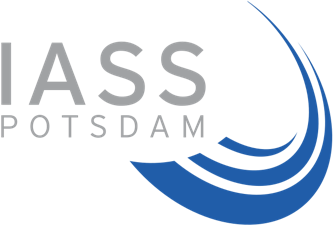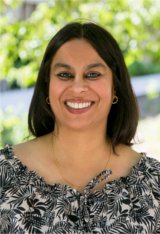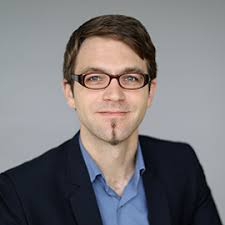


Access to energy depends on a broad set of factors and cannot be assessed using purely binary metrics. The Energy Sector Management Assistance Program (ESMAP) Multi-Tier Framework (MTF), introduced in 2015, aims to describe the full dimensionality of energy access by taking into account attributes such as the reliability, affordability, availability, safety, and quality of available energy.
Since 2016, the ESMAP has been implementing the MTF at the country level (see the dashboard). The MTF methodology delivers data and analysis that can be useful in the identification of major challenges and barriers to energy access (gap analysis), project formulation and design, implementation, and impact evaluation.
While the objective of the World Bank ESMAP is to enable tracking of SDG 7.1 with the MTF, binary metrics are still standard in energy access measurement, and the approach is still far away from being fully integrated by national governments across the world. Proposals on revisions and adjustments, tier extension, alternative frameworks, and progress indices have helped guide its further development and improvement. The aim of this webinar is to discuss the practices, lessons learned, and way forward of the MTF.
With MTF established as the framework to track SDG 7.1 and less than a decade to reach the SDG goals, efforts to track progress should be aligned with a common language worldwide. Gathering the leaders who have driven the discussion on the role, advantages, and drawbacks of the methodology together, we look forward to presenting guidelines for the MTF’s revival and dissemination.

Passionate to drive the 5D’s fuelling our energy future: Decentralization, Decarbonization, Disruption, Democratization & Digitization! In line with these beliefs, together with his colleagues at SOLshare, Dr. Groh installed the world's first solar P2P energy exchange platform in a remote area of Bangladesh.
Dr. Groh is a 2013 Stanford Ignite Fellow from Stanford Graduate School of Business and holds a PhD from Aalborg University and the Postgraduate School Microenergy Systems at the TU Berlin where he wrote his doctoral thesis on the role of energy in development processes, energy poverty & technical innovations, with a special focus on Bangladesh.
He published a book and multiple journal articles on the topic of decentralized electrification in the Global South. Dr. Groh started his career and received his DNA at MicroEnergy International, a Berlin-based consultancy firm working on microfinance and decentralized energy.
In 2014, Dr. Groh founded SOLshare, acting as its CEO since then. He is also an Associate Professor at BRAC University in Dhaka (Bangladesh). On behalf of SOLshare, he received numerous awards, among them Tech Pioneer ‘18 by the World Economic Forum and the best energy startup in the world by Free Electrons. SOLshare also received the UN DESA Powering the Future We Want USD 1M Energy Grant, along with Grameen Shakti, is listed in the Cleantech 100 and won the prestigious Ashden Award in 2020. Dr. Groh became Ashoka Fellow in 2018, & UBS Global Visionary in 2019, as well as received the 2019 Unilever Young Entrepreneurs Award.

is current Acting Director of the Transitions to New Technologies (TNT) Program & Senior Research Scholar in the Energy (ENE) Program at the International Institute for Applied Systems Analysis (Austria). She served as Adjunct Professor at the Yale School of Forestry and Environmental Studies, where she taught graduate courses during the 2016 Fall semester.
Dr. Pachauri’s research focuses on the role of technological, institutional and social innovations for inclusive human development, particularly for those people without access to basic infrastructures and services. She coordinates and leads research on analyzing heterogeneities in energy and infrastructural access and use in the developing world, policy pathways for achieving universal access to modern energy services and technologies and assessing the wider impacts of this for sustainable development. She has published extensively on these topics, both in the form of scientific peer-reviewed articles and policy reports.
Dr. Pachauri is a Lead Author for the IPCC WGIII AR6 report and was Coordinating Lead Author for the Global Energy Assessment (GEA). She serves on the science advisory panel for the Climate and Clean Air Coalition (CCAC), and on the advisory group for the International Network on Gender & Energy (ENERGIA). She is also on the editorial advisory boards for the journals Environmental Research Letters, Current Research in Environmental Sustainability, Economics of Energy & Environmental Policy and Global Environmental Change. She holds a Ph.D. from the Swiss Federal Institute of Technology, Zurich (ETHZ) and a M.Sc. from University College London (UCL).

is a development economist with broad experience in the energy access space. He is research associate in the “Climate Change in Developing Countries” department at RWI, a leading independent and non-profit centre for economic research and evidence-based policy advice based in Essen, Germany, and partner at the consultancy ecol.
His research interest lies in the empirical investigation of markets for environmental goods and technologies as well as the socio-economic effects of development measures, such as improved cookstoves.

Klaus Töpfer Sustainability Fellow from Institute of Advanced Sustainability Studies (IASS), director of HEDERA Sustainable Solutions GmbH, a spin-off of TU Berlin Institute for Energy Engineering (IEE), co-head of the Green Inclusive & Climate Smart Finance Action Group from the European Microfinance Platform (e-MFP) and guest lecturer at the Pan African University Institute of Water and Energy Sciences including Climate Change (PAUWES) and at TU Berlin Campus El Gouna.
Natalia holds a PhD Degree in access to energy from the Institute for Energy Engineering at TU Berlin. She has worked for over a decade in the green microfinance sector as senior project manager and energy consultant, supporting institutions in enabling access to clean energy in rural remote regions, managing projects in Latin America, Central Asia and Africa. Based on the results of her PhD, HEDERA was launched to offer digital solutions to measure energy access and track progress out of energy poverty at household level. Natalia delivers trainings on energy access, demand assessment, green microfinance, tools for evaluating environmental performance and on rural energy supply.